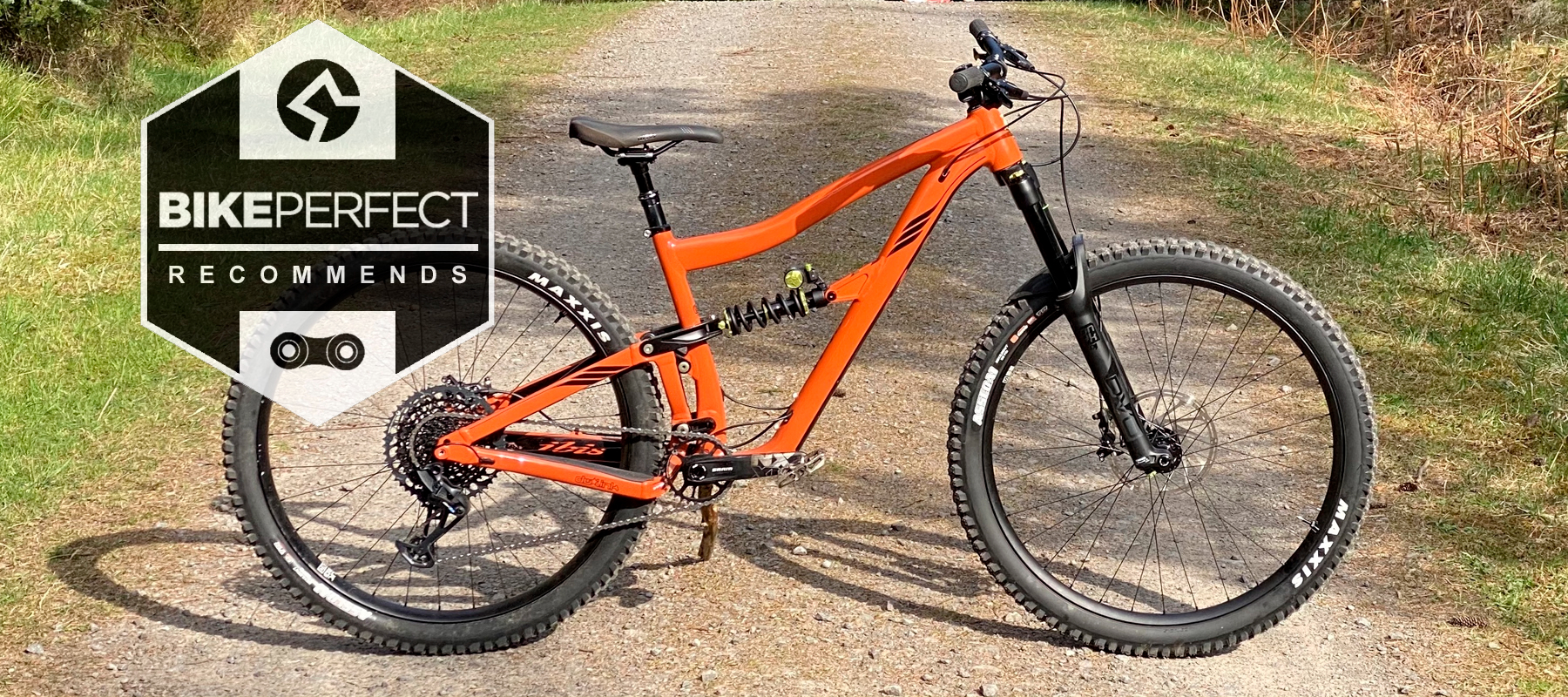Bike Perfect Verdict
Smoothly poised, eclectically equipped, hard driving, coil-shock, wide wheel, alloy all-rounder with an emphasis on maximum riding and minimal wrenching.
Pros
- +
Excellent DW link suspension
- +
Sorted frame feel and geometry
- +
Plush, controlled, DVO coil-shock
- +
Seven-year frame warranty
- +
Eclectic but well curated components
Cons
- -
Fork needs more tuning than some
- -
No internal storage
- -
No geometry adjustment
Why trust BikePerfect
Ibis are one of the oldest brands in mountain biking with a reputation for disruptive innovation that they’re clearly keen to continue. The Ripmo AF takes the template of their carbon fiber aggro all-rounder, the Ripmo, and renders it into alloy, with tweaked angles, a coil-shock and extra wide rims to underline it’s rowdy intent. Ibis have deliberately minimized maintenance time with the suspension choice and other features, but it’s lighter and better pedaling than you might think too. That makes it well worth consideration if you’re after an affordable aggro all-rounder with iconic and eclectic appeal, and a contender for our guide to the best mountain bikes
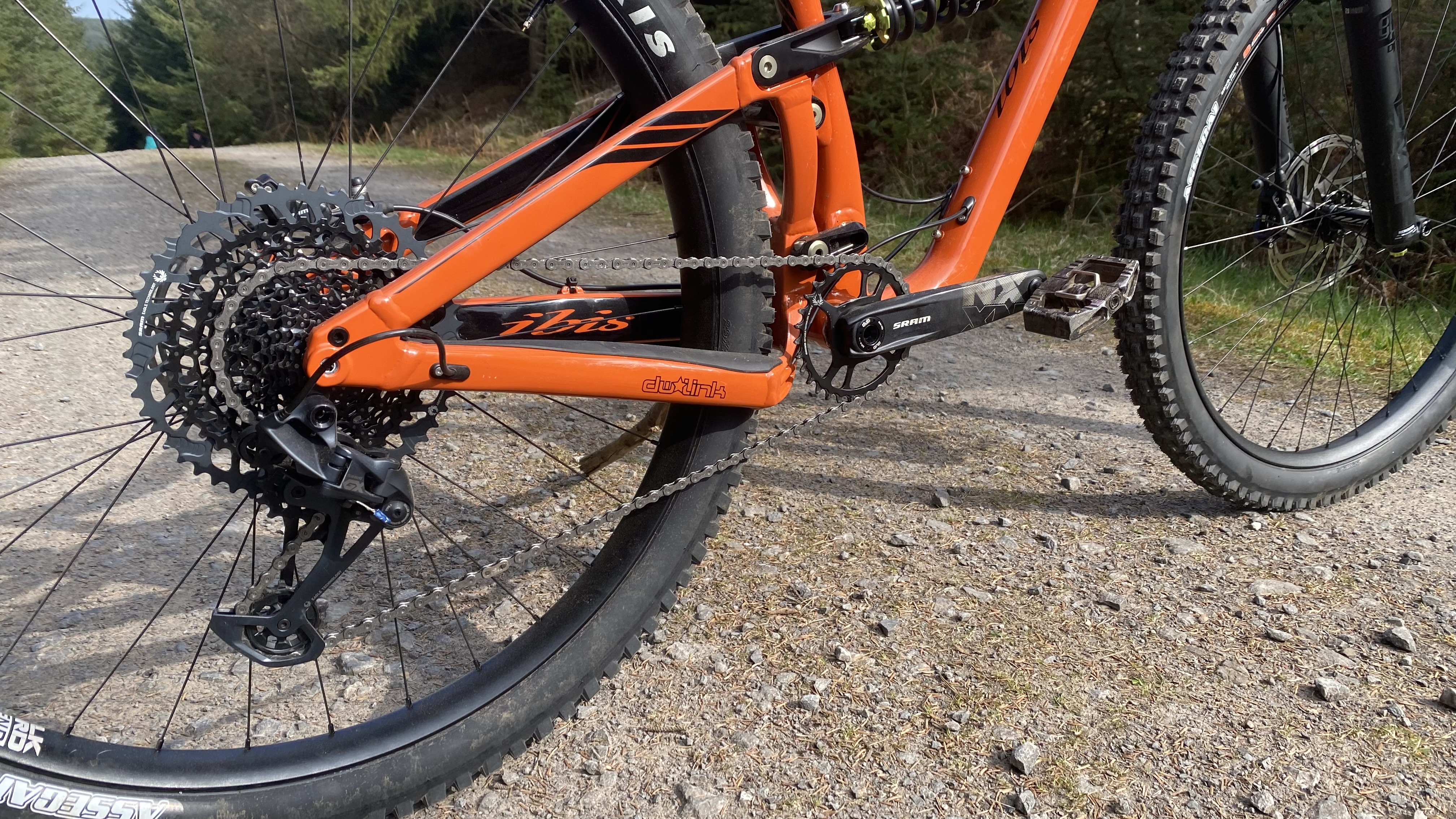
Design and aesthetics
With the shock straight and flat through the tall looking center, a compact rear end and a relatively busy area around the short DW linkages, the Ripmo AF definitely has a functional rather than beautifully balanced aesthetic. All the main tubes are curved and kinked to a varying degree though with a long shared seam behind the short head tube and a flared base to the seat tube before it joins the threaded BB. The swingarm section is attached via two short linkages with the DVO coil shock (an air option is also available) driven by a U-shaped yoke attached directly to the swingarm. A dropped drive side chainstay means decent mud room with a 2.5in tire despite a relatively short 435mm rear end. The shock arrangement leaves space for a bottle underneath and there’s a removable chain guide mount too, though our test bike didn’t come with it.
Armor is limited to a chain slap strip on the chain stay and the control cable/hose routing spends a lot of time outside the frame too. There’s no internal storage or built in geometry adjustment either, although you could fit your own angleset style headset cups.
Fans of clumsiness-proof bikes will be delighted to see big bolt heads on all the pivots, bearings and even the seat clamp and you get a seven-year frame warranty too. There are two colors - ‘raw metal’ or ‘red savina’ (as tested) - and small, medium, large and xl sizes. These all have the same 64.9-degree head angle, 30mm BB drop and 435mm long rear end but the small gets a 77-degree seat angle with 76-degree on other sizes. Reach spans 431mm to 495mm with the large I tested sitting at 475mm. Weight for a medium frame with Topaz air shock is listed as 3.74kg (8.25lbs), so expect the coil version to come in around 4.2kg (9.26lbs).
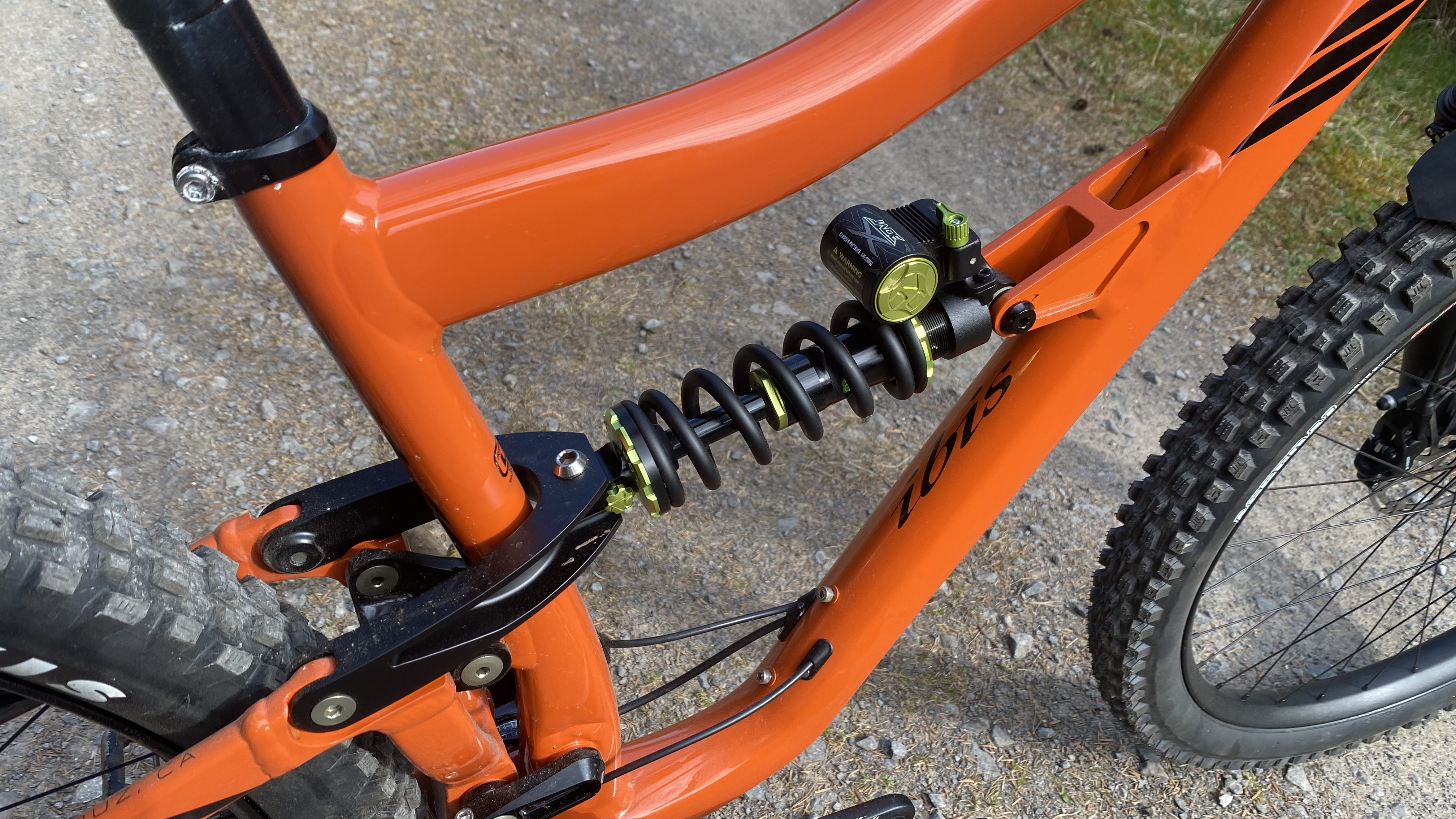
Specifications
There are two obvious talking points with the spec. One is the DVO Jade X coil shock upgrade and the other is the fact the bike comes with Maxxis Assegai tyres front and rear. Even though the tires are MaxxTerra not MaxxGrip compound that’s still pretty blatant signalling that this bike is built to go hard on the roughest terrain. That said even the standard air shock option has a DVO Topaz T3 with piggyback damper chamber for extra damping subtlety and heat control on really long, rough descents. The Onyx D1 fork is DVO too, with 160mm stroke and high and low speed compression and low speed rebound adjustment (but not the Off The Top, start stroke preload adjuster of the aftermarket SC fork).
The wheels are based on Ibis' own 35mm internal rims to add even more width and a squarer stance to the 2.5in rubber compared to ubiquitous 30mm internal width rims now found on many trail bikes. The 780mm bar and size specific (S/M: 40mm, L: 50mm, XL: 60mm) stem are Ibis too, using a 31.8mm diameter. The KS Rage-i Dropper is size specific too (S: 125mm, M: 150mm, L/XL: 170mm). As the name suggests the NGX spec is a mix of SRAM NX and GX, but only the cassette and rear mech are from the pricier GX group. The brakes are SRAM G2 R 4 piston with a 200mm front rotor for extra stopping power, although I’m surprised a bike this purposeful doesn’t get the more powerful Code brakes as standard.
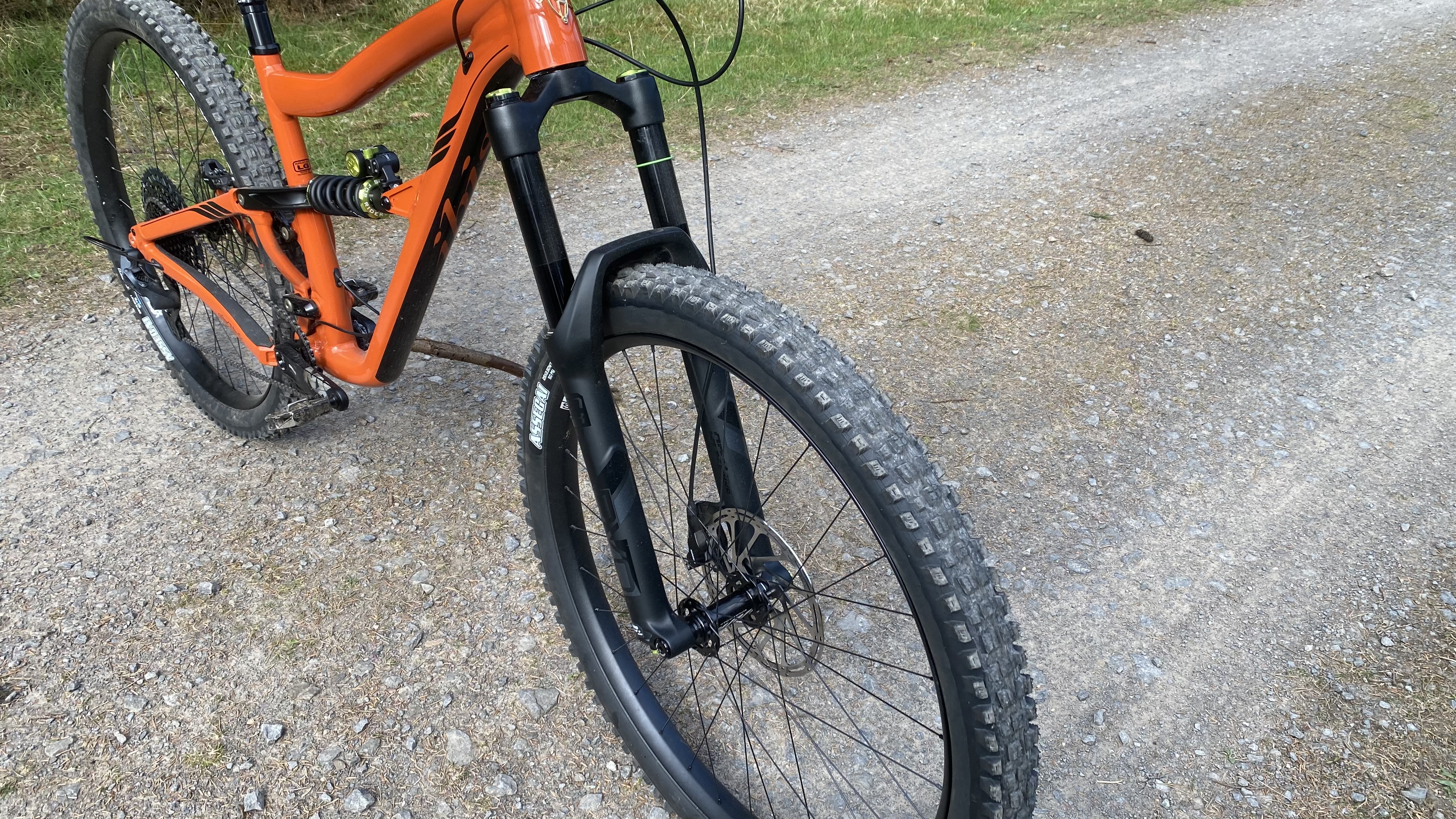
Performance
My test ride in on the Ripmo was on a good mix of flowing berms and jump lines that switched into increasingly rough man-made flow trail. The first part of the session was about gaining height on a mix of fire road slog and rougher, steeper rocky sections though. While Assegai have a rightly deserved reputation for unholy grip in turns, there’s still enough ramp on the knobs to mean they roll OK in the MaxxTerra compound. Even with a coil-shock it’s also nearly a kilo lighter than the Specialized Stumpjumper Evo Alloy and the Focus Jam at a similar price. So whole while 15.66kg isn’t light, it’s a decent weight for the category and cost, with the potential to pull nearly 500g (nearly a pound) out by opting for the air-shock.
Although the broad rims and supple coil give rich trail contact feel, the DW Link is efficiently stable if you stay in the saddle and spin. That rich contact and the steep seat angle kept the Ripmo gripping well on rough, rocky and loose technical climb sections too. There is some palpable suspension bob if you grunt a stiff gear round stood up, but if you know you’re doing that for a while you can just flick the compression stiffening lever on.
As well as being naturally stable and centered under power, the short, broad arms of the DW Link set up give the Ripmo AF an encouragingly tight feel whenever you’re trying to inject some speed through the pedals. No wallow, no initial dip of the back end as the chain tightens and no sense that you’re losing any of your effort into the shock. Wherever it is in the stroke, out of a high load corner or as soon as the wheels touch back down, the Ripmo AF is ready to press on with purpose.
The DW Link doesn’t obviously get in the way of the super supple combination of rim fattened Assegai tires and low stiction coil shock start either. Add geometry that naturally centres you over both wheels and there’s a constant sense of a very grippy, planted bike. The 50mm stem means it sometimes runs a little wide on turns and berms but once I’d adjusted the stability and sheer ‘stick’ translates into seriously aggressive lean angles and really high hook speeds through corners. While the short linkages give clear and clean communication there’s enough compliance in the mainframe and rear subframe to add grip rather than shudder and stutter. Together with the big, broad tires that might feel slightly vague if you’re a fan of super sharp, precision targeting.
The back end does an excellent job of balancing lift off launches, super composed landings and sucking up blocks, braking bumps and random rock features without disturbing the overall stability and composure of the Ripmo AF. That does put a lot of focus on the fork and even though it has 14mm more travel than there rear end, I felt the Onyx spiking and feeling harsh in comparison. In fairness I didn’t have time to go any deeper into tuning than winding the compression fully off, and you can add a lot of initial plushness via the OTT (Off The Top) preload feature. That sucks the fork down into it’s travel though so even if you can get a better result it’s not the simplest unit to set up.
One very telling aspect of componentry performance on the trail compared to pre-ride expectations are the G2 brakes. While I expected to want more bite and power than SRAM’s mid-weight, mid-range trail stoppers, the truth is I never even noticed them. Simply because the Ibis was so comfortable taking high speeds into big G-turns, rocky jank or random tech sections where I’d normally be on the anchors.
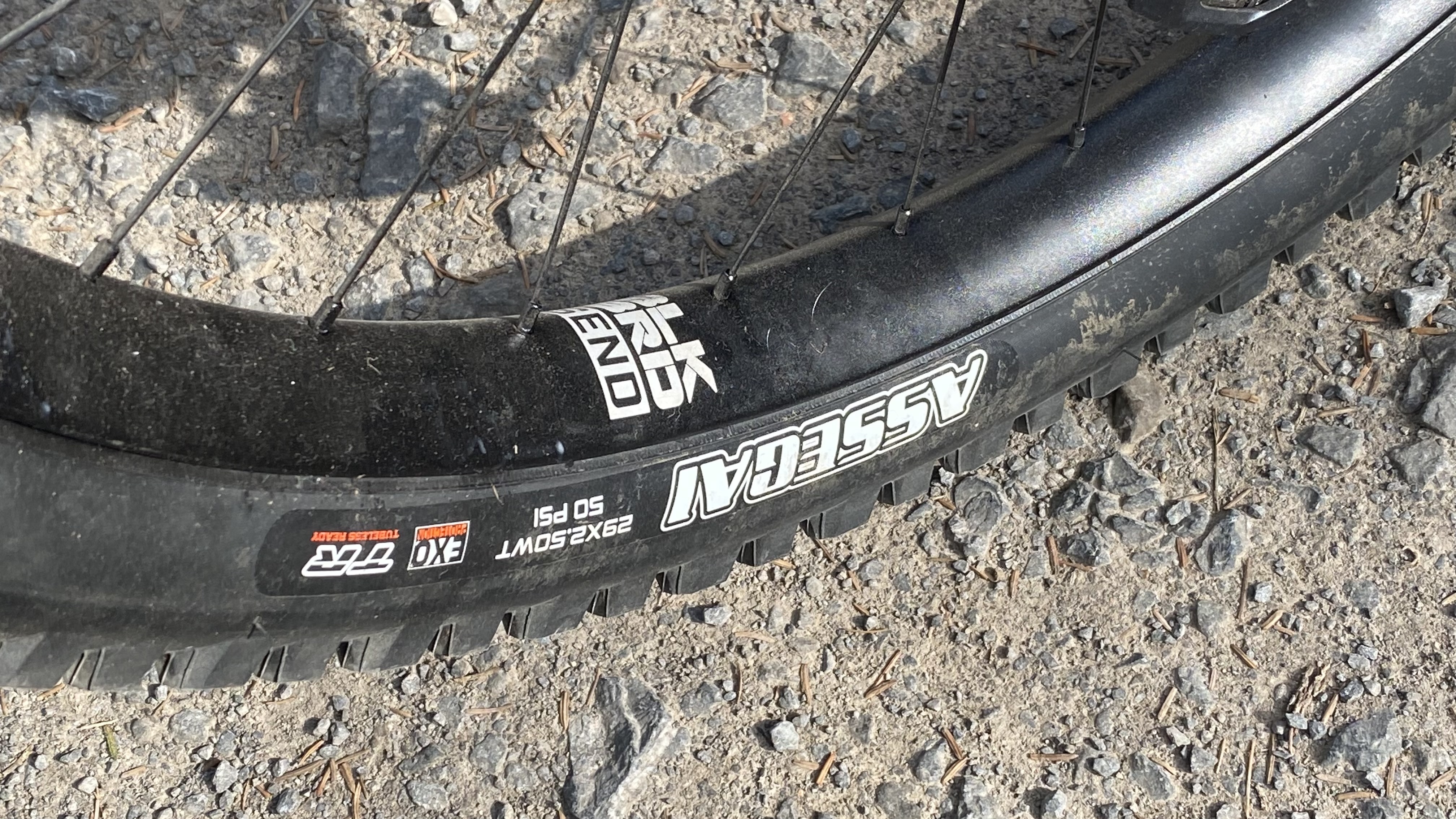
Verdict
Ripmo AF isn’t a new bike and it’s lacking some of the latest tricks such as internal storage and adjustable geometry, but wins with impressively tight and poised short linkage suspension and big bolt durability all round. What was radical geometry is relatively commonplace now too, but it’s still superbly balanced despite differing travel front and rear. Considering the fork and coil shock are both heavy pieces, overall weight is good for category and cost too. Where the Ripmo AF really stands out though should be clear as soon as you see the coil-shock and double Assegai spec on super wide rims. This is one of the grippiest, most connected bikes around and if you like leaving the brakes untouched and taking cornering speed and lean angles to the limit you’ll love it.
Tech Specs: Ibis Ripmo AF
- Discipline: Trail/enduro
- Price: $4,399 (frame only $2,249)
- Head angle: 64.9-degrees
- Frame material: Alloy
- Size tested: Large
- Available sizes: S, M, L, XL
- Weight: 15.66kg
- Wheel size: 29-inch
- Suspension (front/rear): DVO Onyx D1 160mm travel, 44mm offset/DVO Jade X Coil, 210 x 55 146mm travel
- Components: SRAM GX Eagle 10-50T, 12-speed mech and cassette. SRAM NX 30T chainset, shifter and chain. SRAM G2 R brakes with 200/180mm rotors. Maxxis Assegai MaxTerra Exo+ WT 29 x 2.5in front and rear tires on Ibis BLK BRD SEND S35 wheels. Ibis 780mm alloy bar and 50mm stem, KS Rage-i 170mm dropper post, WTB Silverado saddle
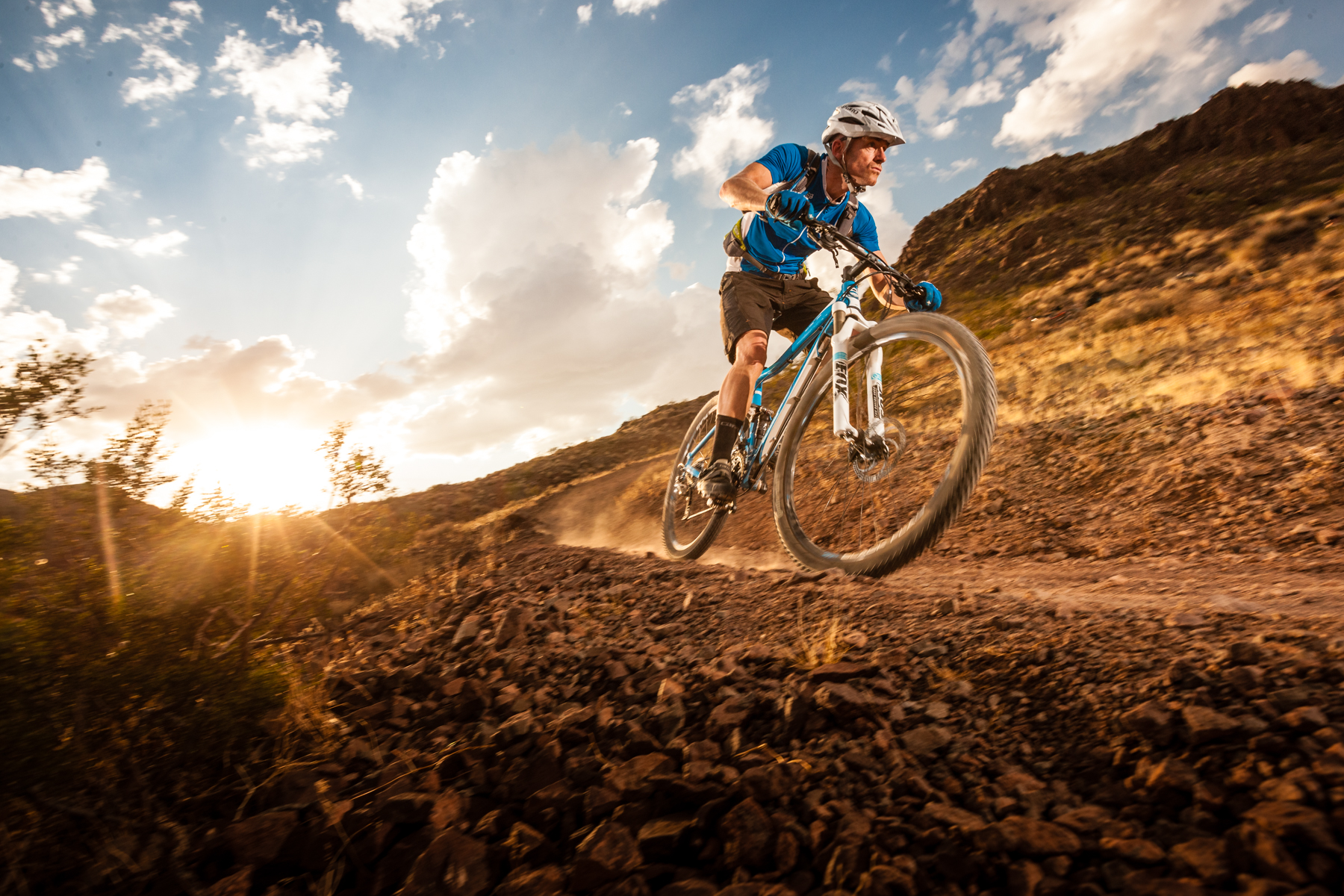
Guy Kesteven has been working on Bike Perfect since its launch in 2019. He started writing and testing for bike mags in 1996. Since then he’s written several million words about several thousand test bikes and a ridiculous amount of riding gear. He’s also penned a handful of bike-related books and he reviews MTBs over on YouTube.
Current rides: Cervelo ZFS-5, Specialized Chisel, custom Nicolai enduro tandem, Landescape/Swallow custom gravel tandem
Height: 180cm
Weight: 69kg
